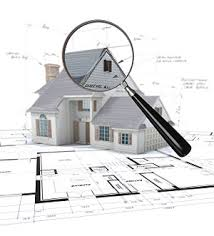Buying a home will probably be the most expensive investment most of us will make in our lifetime, whether it is your first, second, or third home. Although the initial capitol expense for the house is set by the “sticker price,” there can be hidden costs such as future repairs, maintenance, etc. A professional evaluation (or home inspection) would be a logical step towards protecting your interests and investment by determining what hidden costs you may be up against.
A general home inspection is a visual, non-intrusive, examination of the house. Generally, house inspections inform the purchaser of the types of repairs and maintenance that may be necessary or that can be anticipated. Considering that the average home buyer only looks at a home for 20 to 30 minutes, the inspection and report provide the buyer with a better understanding of the observed conditions of the house. Although house inspections seem to point out deficiencies of a house, they should also point out positive aspects.
Not every home inspection or inspector is the same. Inspectors use various forms for checklists. Some forms include a space for comments. Sometimes there may be a more detailed narrative included with the forms. Some inspectors provide only a narrative and no checklist. The level of experience that inspectors have will also vary. Some inspectors may have a construction or engineering background, others may have taken a correspondence course or workshop while, others may have learned to be an inspector on the job. Some inspectors may belong to a professional association, while others may not.
A home inspection should include the visual evaluation of the following: structure (foundation, floor, wall and roof system), heating and cooling system, plumbing, electrical, exterior wall system (siding, windows, doors), interior system (walls, ceiling, floors), roofing, water supply, septic system, and grounds. Some inspections are specific and may only evaluate certain elements of the house such as the structure or the septic system.
The cost of the inspection may vary depending on the detail required, and the price may be in the range of $250 to $500. A more detailed investigation of the structure (structural evaluation by a licensed engineer) could cost even more.
Some inspectors may carry insurance (errors and omissions) that pay for damages due to gross negligence in performing their job (not observing a condition that will cost thousands of dollars to repair) while others do not. However, it should be noted that insurance companies are not in the business of losing money and generally the money is used to defend the inspector in court. The inspector should also carry general liability insurance.
If you are buying a home, it is important that you get it inspected, even if you have a background in construction. The home inspector is a third party inspector looking out for your interest and is not involved in the emotions of purchasing the home. When you are searching for an inspector you should feel comfortable with the one you choose. You should phone interview at least three inspectors, ask for an example of their work, as questions on how they perform their inspection, ask if they carry errors and omissions insurance and what it covers, and always ask for references. You should not feel rushed by the Realtor or the attorneys. You should take your time in hiring the right inspector for the job. Leave time for a second, more detailed inspection of potential problems or for repairs.





Thanks for the tips, I had never reflected enough about these things.
It’s amazing how many details there are to consider. I’m glad we could help!